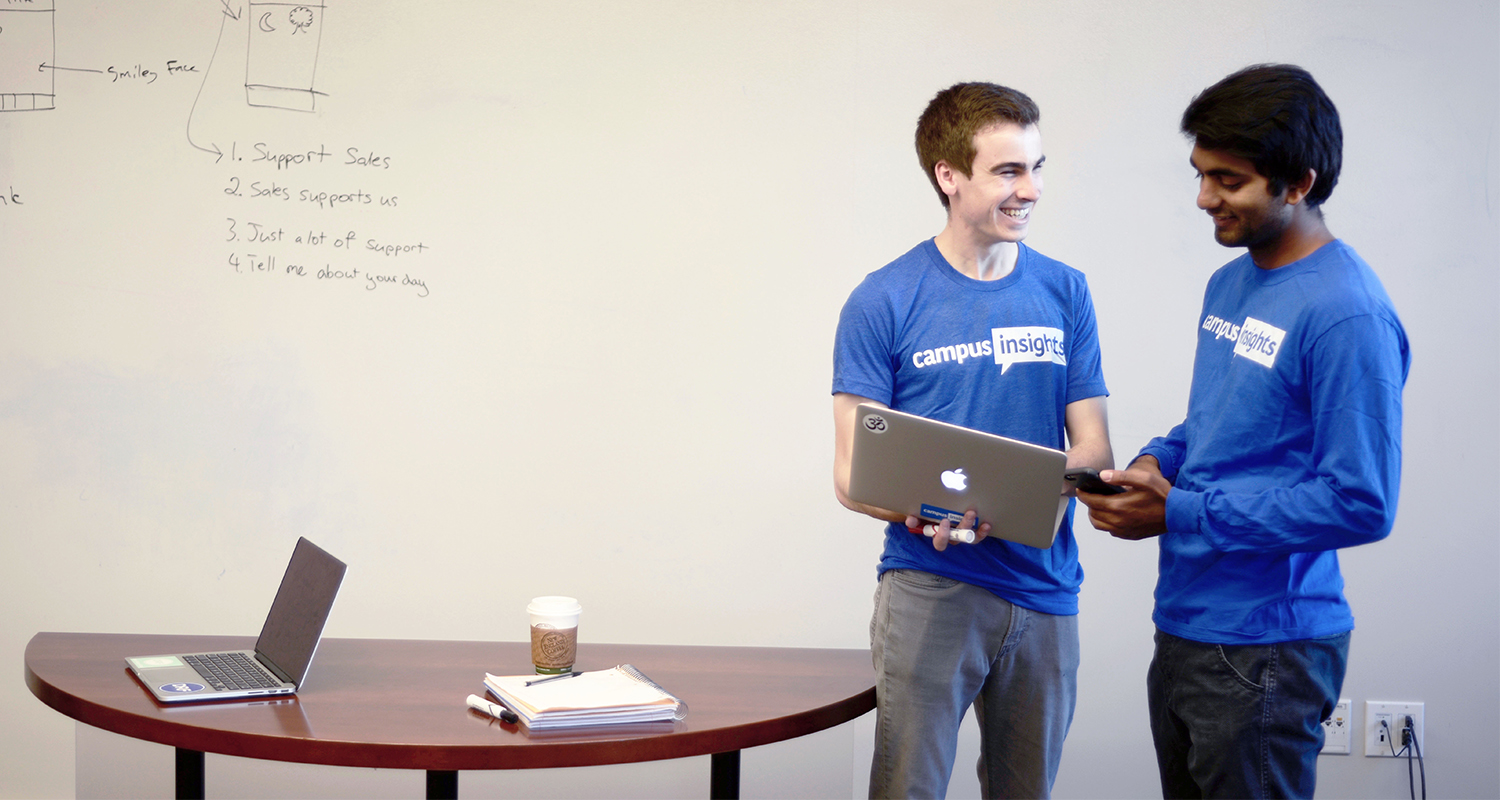You suppose your app must be intuitive for college students. But is it? The surest way to find out is to hire market researchers who are students themselves. Have them hit the campuses, show the apps to their fellow young men and women, and get honest feedback.
That’s the premise behind Campus Insights, a startup Riley Soward ’18 founded as a freshman in the Boston College Carroll School of Management. And big companies like Airbnb, Venmo, and GoFundMe agree with that premise—all are Campus Insights clients. Now, as Soward winds down his final year on the Heights, he’s turning over the reins of his creation to the largest student-run company in the world: Harvard Student Agencies (HSA) acquired Campus Insights this month.
The sale was announced on February 13, prompting articles in such outlets as the Boston Globe (details about the terms were not disclosed). According to Soward, the deal preserves the company’s business model and ensures that clients will continue to get the kind of user experience data they’ve been paying for—real talk from the kids.
“We started Campus Insights because we knew high school students, college students, and recent grads would be most comfortable and candid when being interviewed by a researcher in their age group,” said Soward, a computer science student who launched the company in 2014 with his brother Stephen Soward, then a junior at the University of Michigan. (The brothers grew up in Silicon Valley.) The idea hatched in a conversation Riley Soward had with a fellow Eagle, Patrick Allen, Morrissey ’13, and took its first steps on the Boston College Quad, with Soward videotaping his classmates’ reactions to various products.
Since then, the company has grown into an emerging leader in market research on Generation Z and Millennials, with a half-dozen employees—including two from the Carroll School class of 2018, Ameet Kallarackal and Kelsey Bishop—conducting interviews and focus groups across the country and interpreting the results for companies small and large. Clients range from the abovementioned behemoths of short-term home rentals (Airbnb), online payments (Venmo), and fundraising (GoFundMe) to Chegg, a college textbook rental company, to Paktor, the most popular dating app in Asia.
In a sense, Campus Insights has flown the coop with its acquisition by HSA, which oversees sixteen agencies, employing Harvard students as tutors, bartenders, dry cleaners—to cite a few of its businesses—and, now, market researchers. As before, these students will fan out across campuses nationwide, often virtually (via remote interviews), to reach a representative sample for each survey. (They will not be simply walking around Harvard Yard with a video camera.)
While Soward is seeking a new startup to join, he and his brother are staying on at Campus Insights in active advisory roles. “A lot of that will be helping on the sales side and reviewing research deliverables to make sure they’re high quality,” said Riley Soward. “And a small piece will be helping build Campus Insights into our long-term vision, which is a long-lasting community.” One day, Soward hopes, a Campus Insights stint on a resume will serve as a “stamp of approval, something people can bond over.”
Asked about the part Boston College played in Campus Insights’ origin story, Soward ticked off the connections. “First client: referred by a BC alum. Second client: referred by a BC student. Third client: referred by a BC professor. And then we had enough under our belt to grow. But we’ve consistently benefited from BC and the BC startup community. Close friends and mentors, or people I go to to bounce ideas off of, are other BC students working on startups, who I met through the Shea Center”—the Edmund H. Shea Jr. Center for Entrepreneurship.
Not to mention, Soward and colleagues carved out some de facto office space by squatting after hours in a classroom in Carney Hall, where they worked on research projects, he said. “Ameet and I spent a lot of late nights in Carney.”
Want to learn more? Read the Heights magazine’s profile of Riley Soward.



